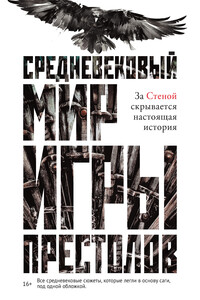40 лет Санкт-Петербургской типологической школе - страница 44
(8a) My dvaždyj prošli mimo levogo bašennogo kryla zamka….
Vpervyj raz okna byli zakry-t-y.
windows were close.PF-PPP-PL
«We passed twice by the left tower wing of the castle. The first time the windows were shut».
(8b) Rita noč'ju zatejala ssoru: trebovala zakryt' okno….
Takprepiralis' dolgo, i Rita, razumeetsja, vzjala verx:
okno bylo zakry-t-o.
window was close.PF-PPP-SG.NEUTER
«At night Rita began a quarrel insisting that the window should be shut. They carried on for a long time and it was Rita who had the upper hand: the window was shut».
According to Knjazev, in (8a) the construction okna byli zakryty «the windows were shut» is an objective resultative, whereas in (8b) the construction okno bylo zakryto «the window was shut» is an actional passive. In other words, the construction in (8a) has the meaning of a state and implies: a) on the semantic level, one participant only about which a contingent property is predicated through the past passive participle; b) on the syntactic level, the structure is of the predicative type where the predicate, even though it has the form of a past passive participle, has the status of an adjectival determiner. On the other hand, the construction in (8b) has the meaning of a resultative state having, on the semantic level, three characteristics [DesclSs & GuentcMva 1993: 91]: 1. it implies a preceding event and the existence of an agent (specified or not); 2. it determines a property of the patient; 3. the property is not necessarily contingent upon the implied preceding event. On the syntactic level, the auxiliary operates on the past passive participle, associated with an abstract passive predicate which includes the notion of an unspecified agent, in view of its transformation into a verbal unit [ibid].
The resultative state, which I have just defined, must not be confused with the resultant state. Indeed, in languages such as Bulgarian, where there is an overt expression of the perfect (9b) and of a periphrastic passive (9a), these two notions are clearly distinguished:
(9a) Otvori čekmedžeto i razbra: parite
open.PF.AOR drawer.the and understand.PF-AOR money.PL bjaxa otkradnati.
was steal.PF.PPP
«He opened the drawer and understood: the money had been stolen».
(9b) Otvori čekmedžeto i razbra: bjaxa
open.PF-AOR drawer.the and understand.PF.AOR were
otkradnali parite
steal.PF.APP.PL money.PL
«He opened the drawer and understood: someone had stolen the money».
Although these two forms may appear in the same context, each has its own meaning: (9a) denotes a resultative state as defined above; it permits therefore to draw attention to the patient and to the characteristic which is attributed to it by the passive predicate; if the verbal form is a reminder of the implied event, it is in order to signify that at its origin is an agent. On the contrary, (9b) is an overt expression of the perfect; it denotes a resultant state: that is, a state which is brought about by an event and which is contiguous to this event.
It has often been pointed out that the periphrastic passive tends to be constructed with a perfective past participle, whereas the reflexive passive tends to use the imperfective form. On this subject Siewierska [1988: 247] notes that in Slavic languages, with the exception of Polish, the periphrastic passive including an imperfective participle rarely appears, and quotes Czech and Serbo-Croatian where the constructions are said to be used mainly in scientific texts. This affirmation is not wholly justified. In Russian, the contrast is not any clearer: the constructions with an imperfective past passive participle are sporadically attested [Maslov 1988; Poupynin 1996: 131] and are subject to strong lexical, syntactic and contextual constraints; they are allowed in varying degrees in Czech, Serbo-Croatian, Polish, and above all Bulgarian.



